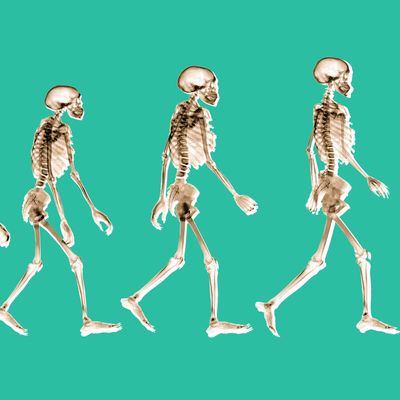
The human brain is naturally self-centered: Given no tasks to attend to, the neuroscience research indicates, it will turn inward, wandering through memories of the past and prospecting toward the future. One might say that its default mode is “selfing.” In its milder forms, that processing decouples the person from their sensory experiences; in extreme, pathological cases, it can lead to spiraling, crippling rumination.
Most cognitive scientists believe this is a uniquely human trait. While all animals have bodies, only humans have fully formed selves. (Though animal minds are rightly getting more attention – hello, octopus – that’s still not the same as a self, with continuous identity, ownership, and the like.) At last weekend’s annual meeting of the Society for Personality and Social Psychology, Roy Baumeister, the Florida State University psychologist behind Willpower: Rediscovering the Greatest Human Strength and a controversial argument or two, presented a novel argument for why selves popped into existence and how they drove human dominance. Essentially, he says, they’re there so that large groups can be more than the sum of their parts. The differentiated self allows for specialization, making clans, tribes, teams, and corporations more powerful than if everybody involved were a generalist.
“The question is why all of a sudden, unlike all the other creatures on planet Earth, why did the human ancestors develop this complicated structure?” he tells Science of Us. Many theorists look for the origins of the self in the brain, he said, and then they declare that it’s an illusion because they can’t find it there. “I don’t think the brain by itself needs a self, or much of one, but to function in these large groups, you do need a self,” he says. “A solitary animal wouldn’t need much of a self at all. It wouldn’t need a name, wouldn’t need ownership, or much of a concept of itself distinguished from others, or to be a member of groups or organizations. But to operate in a human society, you need long-term continuity, and a strict division between me and you. ”
This argument, which Baumeister advanced in in a 2016 Behavioral and Brain Sciences paper co-authored with Sarah E. Ainsworth of the University of North Florida and Kathleen D. Vohs at the University of Minnesota, represents a new direction for social psychology, combining two ongoing lines of research on group dynamics: that groups are bad, since they bring out conformity, social loafing, and the mob mentality; and that groups are good, encouraging cooperation, division of labor, and the wisdom of crowds. To Baumeister and his colleagues, it’s the role of the self that drives groups in either direction, for good or for ill. The group suffers when when the self is subsumed into it, and responsibility — for morality or performance — gets diffused. But if the self retains its individuality, then all sorts of benefits follow.
This happens in two steps, they argue. First, the group must be bonded together as a whole; the individuals have to buy into the collective. Second, the individuals need to be differentiated, individuated, and specialized. When the individual is absorbed into the group, it’s hard to hold them accountable; but when they’re still taken to be individual, their deeds are their own — like how the weakest swimmer in a relay team does better than if they were swimming on their own. “When individuals function as autonomous individuals who contribute to the group and are responsible to it, groups benefit,” they write. You get the best results when the self doesn’t just act on its own to exploit the group, but participates as a “differentiated, yet cooperative member.”
In a way, this isn’t exactly the newest insight; Adam Smith talked up the division of labor in 1776. When I asked Baumeister why it’s taken social psychology so long to synthesize the two traditions of group studies, he said that it’s largely a matter of the practicalities of the discipline: Relationship psychology is already a minority field, he said, and it focuses on couples, parenthood, and the family structure, much more so than large groups. It’s also logistically difficult to get groups of people into a psych lab, further slowing down the pace of research. This in turn has left out important swathes of social life: Your boss’s boss isn’t going to cuddle with you on Saturday mornings, but they’re nonetheless crucial to your economic well-being.
A lot of life is lived in these larger, abstracted, possibly impersonal groups: teams, corporations, banks. “This is something we haven’t understood well in social psych, it’s missing from our picture,” Baumeister said. As large groups fall under greater empirical scrutiny, a more connected account of human nature emerges, like how the individual experience of a group action — like, say, a protest — both spurs personal belonging and civic engagement.
It’s a marrying of collectivist and individualist impulses, and the parallels abound. Contemporary thinking about how the brain optimally functions contends that the brain is at its best when all regions are differentiated from one another as well as integrated into a whole, like a city where neighborhoods develop their local flavor while still being connected to the rest of them. It’s also in line with the way that Jungian analyst Maxson McDowell described the social function of dreams: The visions that people have of their future come from the culture, and if they become their most realized selves, the culture benefits. If progress has a vehicle, it’s the individuated, connected self.




